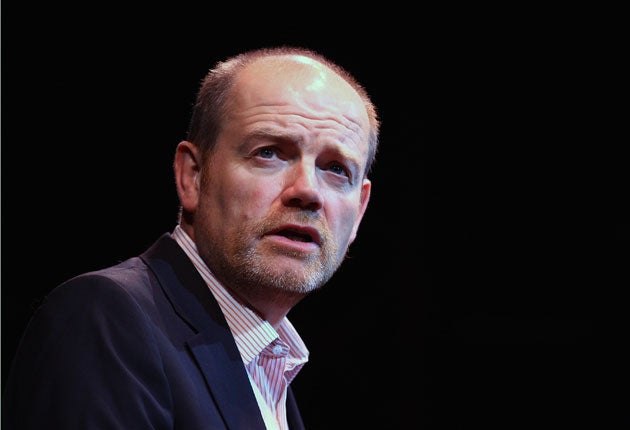BBC chief: investigative journalism must not die

British journalism is going through a "dangerous period", the Director-General of the BBC said yesterday, as he warned of the "disturbing trend" for police forces to demand journalistic sources and materials and cautioned against state regulation of the press.
Mark Thompson warned that the response to the phone hacking scandal at the News of the World should not be to inhibit investigative journalism.
"This is a dangerous period for British journalism," he told the International Press Institute conference in Taiwan. "It would be easy to respond to the completely unacceptable actions of some jour- nalists at the News of the World by adopting such a draconian approach that even the best journalism is constrained. It would be easy for concern over the appalling invasions of privacy revealed by the phone-hacking scandal to spill over into legislation or regulation which enables wrong-doers to escape journalistic exposure."
But he also called for a future press regulator to be given powers to investigate complaints and issue fines. He said it would be a mistake to regulate press and broadcast media with a single body: "To put all journalism under a single converged regulator would potentially mean that, if ever the state wished to limit media freedom, it would have a single lever with which to do so."
Mr Thompson was especially critical of the recent treatment of news organisations by the police. He referred to Scotland Yard's use of a production order under the Official Secrets Act in an attempt to force The Guardian to reveal sources on the phone-hacking story.
"This production order is part of a wider, and in my view, disturbing trend for police forces in many parts of the UK routinely to demand that journalists disclose sources and hand over journal- istic materials," he said.
"At the BBC, we receive an ever-growing number of demands for untrans- mitted news rushes which the police seem to regard as having no more privilege or protection attached to them than CCTV pictures."
He added: "Like politicians, the police often find themselves with a conflict of interest when weighing the independence of the media with their own priorities as they conduct investigations. Sometimes that conflict leads to faulty – and dangerous – actions."
Mr Thompson predicted that the Leveson inquiry into media standards could have implications for relations between the state and the media in many countries.
"Governments and regulators will be watching what happens in Britain with great interest," he said.
Join our commenting forum
Join thought-provoking conversations, follow other Independent readers and see their replies
Comments
Bookmark popover
Removed from bookmarks